Fijian women are beginning to break social and gender rules around their traditional roles and are staying longer in school. Women are now coming out as better educated and more career driven with an ability to manoeuvre and negotiate the demands of their traditional gender roles and customs.
Women candidates standing in this year’s elections boast a wealth of experience, outstanding academic qualifications and longstanding community service. Lawyers, entrepreneurs, women’s activists, former UN staff, academics and civil servants are some of the female candidates contesting the vote. A lot of these women represent the “old guard”, coming from elite or political families such as Ro Teimumu Kepa who isn’t new to politics. She not only carries the title of paramount chief but also has the capacity to influence chiefs of other confederacies. She contested the 2006 elections, winning her seat and becoming the Minister for Education.
On the other hand, we have new kids on the block like Roshika Deo who was one of the first women to declare her interest to stand for elections as an independent candidate. She created the “Be the Change” political campaign to encourage women and young people to embrace civic action through social media. For her work promoting democratic change, social justice and ending discrimination and violence against women and girls, Deo won the US Secretary of State’s Award for International Women of Courage in March this year.
In fact, the improvement in female participation can be attributed to Fiji’s active women’s rights movement. In 2012 femLINK Pacific, the Fiji Women’s Rights Movement, the National Council for Women, and Soqosoqo ni vakamarama (an umbrella body of all women’s groups across Fiji) convened the first Fiji Women’s Forum. This created a platform for increasing women’s participation in politics and leadership.
In June 2014, female representatives from most political parties also participated in campaign training, hosted by Fiji Women’s Forum. The workshop discussed women’s issues in politics and more importantly how women candidates can better prepare themselves.
Women’s NGOs have also put in the hard yards in advocating and promoting gender equality in politics and leadership in this year’s elections. In March this year, Fiji Young Women’s Forum brought together five organisations to encourage young women to actively participate in Fiji’s political future. Almost a quarter of Fiji’s population will be first-time voters in 2014 and over half of all voters will be under the age of 35.
It will be interesting to see how “one person-one vote” translates into voter preferences for female candidates over male candidates. 2014 could mark the year when we not only witness a change in the way Fiji is ruled, but the start of real change when it comes to who rules.
Dr Priya Chattier is a Pacific Research Fellow in the State, Society and Governance in Melanesia Program at the Australian National University’s College of Asia and the Pacific.


